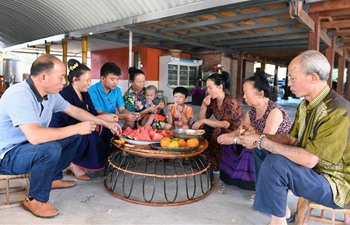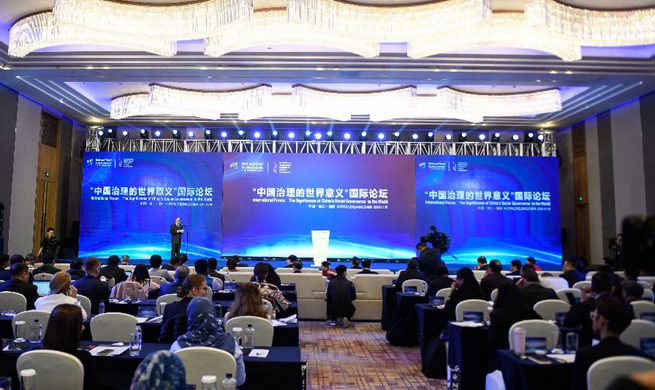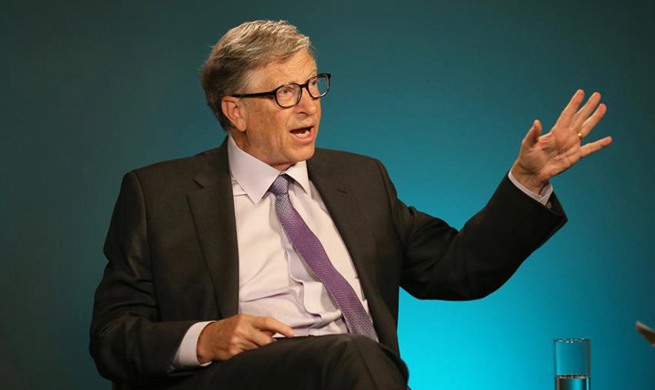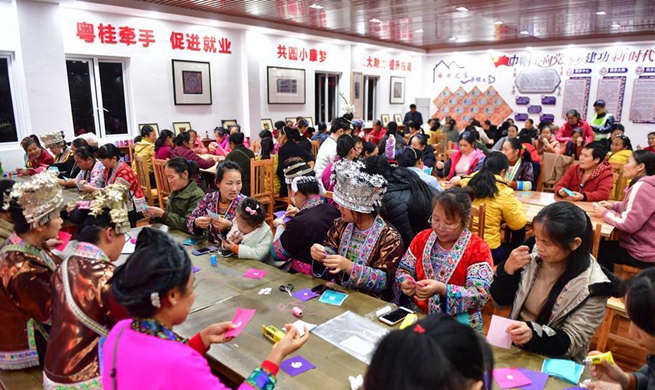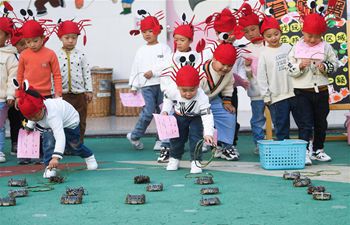UNITED NATIONS, Nov. 19 (Xinhua) -- China's UN ambassador on Tuesday stressed sustainable development as a fundamental strategy for reconciliation and called for tackling root causes of conflict through development.
Zhang Jun, China's permanent representative to the United Nations, told the Security Council that "development is a master key to all problems" and sustainable and inclusive development is an effective solution to the root causes of conflicts.
Most international and regional hotspot issues find their root causes in poverty and underdevelopment, he told the council discussing the role of reconciliation, noting that the way out is sustainable development.
He said it is imperative to pay equal attention to development and peace, advance peace through development, facilitate development through peace, tackle both the symptoms and root causes of conflict, and lay a solid foundation for sustainable reconciliation and peace by strengthening development capacity.
Furthermore, the Chinese envoy highlighted the role of "good offices and mediation" in achieving reconciliation.
In this regard, he said the Security Council's authority must be safeguarded and the role of regional and sub-regional organizations brought into full play.
Zhang said that support must be given to a peaceful settlement of disputes through dialogue, negotiation, mediation, and good offices among others.
"The international community must stay objective and impartial, play a constructive role in facilitating peace talks for a proper solution to regional conflicts and promote national reconciliation, with a view to de-escalating and ultimately solving hotspot issues," he expounded.
In addition, Zhang pointed out that dialogue and consultation are the only way to achieve reconciliation, with international and regional hotspot issues popping up one after the other.
He maintained that the parties concerned must stay committed to candid and in-depth dialogue to enhance mutual trust and reduce mistrust, and oppose wantonly resorting to the use or threat of use of force.
He further noted it is imperative to build the concept of community of shared future, solve disputes through dialogue, settle differences through consultations, promote security through cooperation, and respect and address each other's legitimate concerns, so as to achieve reconciliation and peace.
In the meantime, Zhang emphasized that respecting national sovereignty is a primary prerequisite for reconciliation.
"Countries are different in terms of national condition, judicial system and culture," he said. "Therefore, support and assistance from the international community must be based on the respect for national sovereignty and ownership."
Countries concerned must be supported in advancing reconciliation process in a manner that fits their national conditions, he stressed.
Before Zhang's speech, UN Secretary-General Antonio Guterres highlighted the role of reconciliation in maintaining peace and security, stressing that its processes must evolve to respond to the changing nature of conflict.
He said reconciliation "can no longer be confined to those directly involved in waging war."
As social, economic and political inequalities are growing, amplified by the climate crisis and by new technologies, he said, reconciliation processes must respond to these challenges by being broader, deeper and more inclusive than ever before.
"Reconciliation must have an impact at the individual, interpersonal, institutional and socio-political levels," he said. "Social and economic reform can play a central role in reconciliation."
The UN is endeavoring to incorporate reconciliation programs under peace restoration and peace building initiatives in a number of countries across the world, Guterres said.







